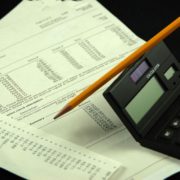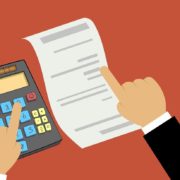Why Bother to Reconcile your Bank Statements?
In addition to working at a CPA firm, I’m also a budgeting instructor. When helping clients create a budget, I’m often asked why anyone should bother to reconcile their bank statements. It’s true; the practice does seem dated. In the “old days” (not so very long ago), reconciling was important as it took checks a week or so to clear the bank, which meant that the balance the bank calculated likely did not include checks that you had recently written.
Things have changed now, with electronic means being the preferred method of banking. However, there are still many good reasons to reconcile your accounts. Let’s count them down:
10. Identify problems before they get out of hand
-
-
- Identify any bank errors (I‘ve seen this happen)
- Catch any double transactions (automatic withdrawals taken out twice)
- Find merchant mistakes (restaurant receipts where you’ve added a tip)
- Know whether any deposits have bounced (customer check payments to a business
-
9. Identify any possible fraud or security issues before it’s too late to do anything about it
8. Confirm that all transaction amounts match (particularly handwritten checks and deposits of multiple purchases) to ensure:
-
- The bank got it right
- Your data entry is accurate and complete
7. Remind yourself of automated payments, so you remember where your money is going
6. Monitor any transactions that don’t clear, so that you can investigate for prompt resolution
5. Keep an eye on bank fees
4. Know exactly where your money went
3. Know exactly how much money you actually have
2. Helps to monitor your spending habits, encouraging you to pay attention to where your money is really going (ex. do you realize that your $3 coffee on the way to work 5 days a week, 52 weeks a year adds up to $780?)
1. By taking responsibility, it’s a reminder that you are in charge of your money, not the bank
So let’s recap. Good reasons to reconcile your bank statements are to identify errors and fraud, confirm accurate transactions, track pending purchases, monitor your spending habits (to help you decide whether $780 is too much to pay for coffee on the way to work every day). Most importantly, reconciling your statements helps remind you that it’s your money, not the bank’s. It’s critical to take charge of your financial life instead of trusting the bank to do it all. Taking control of where your money goes can help reduce stress levels and allow you to make informed spending decisions. You may even find you don’t need that extra coffee caffeine boost every morning – you can put that $780 towards your next vacation or your retirement fund.





